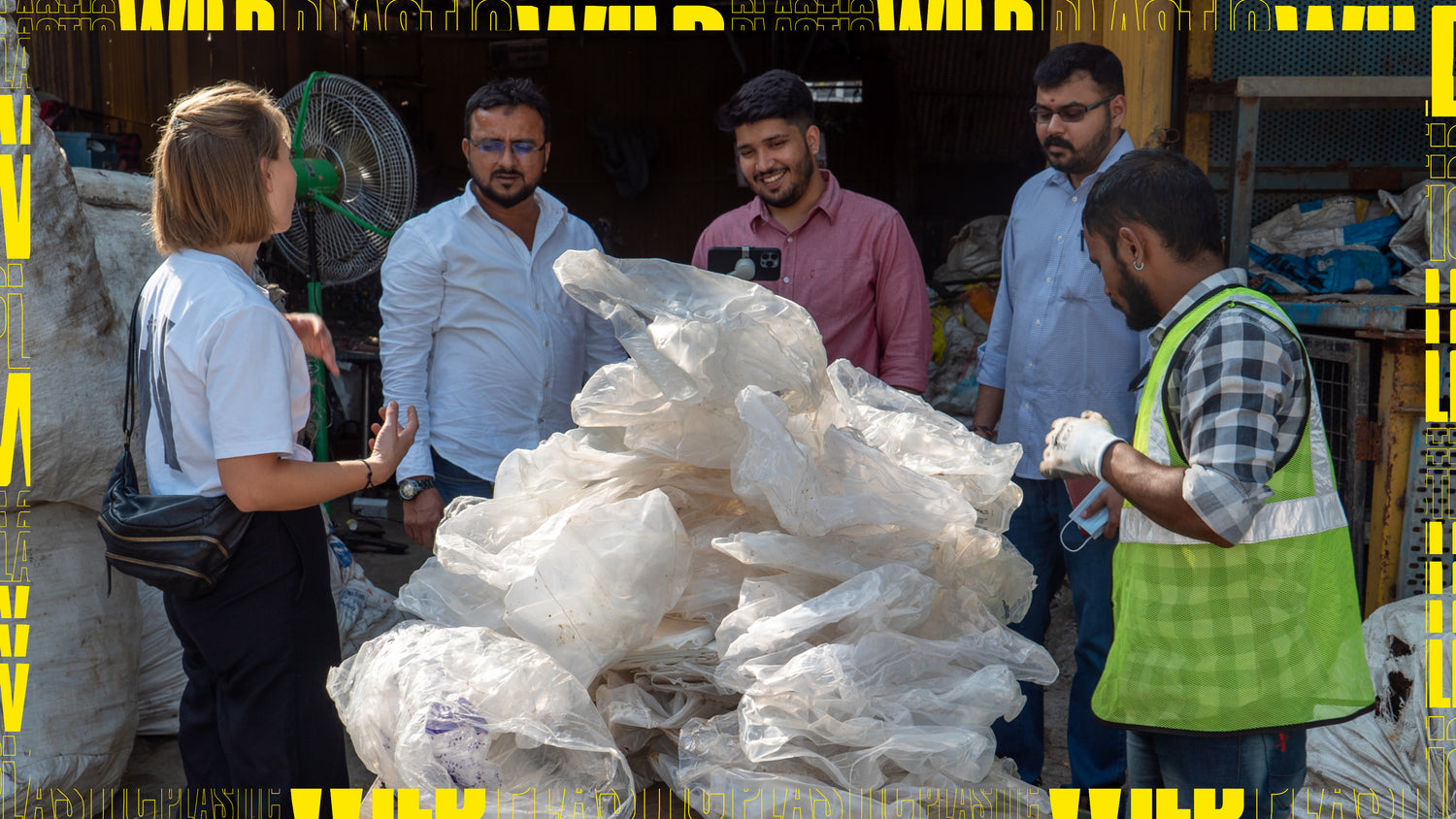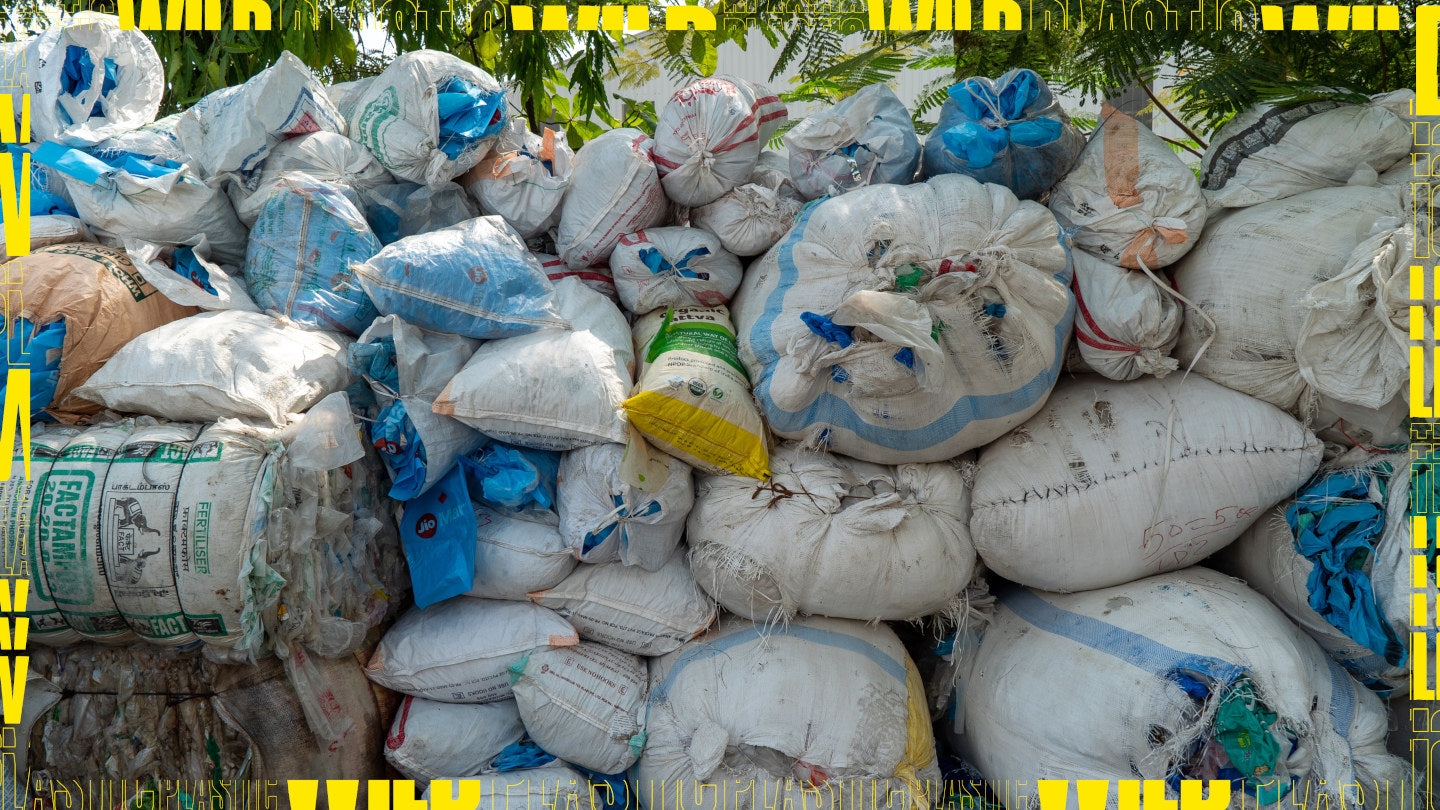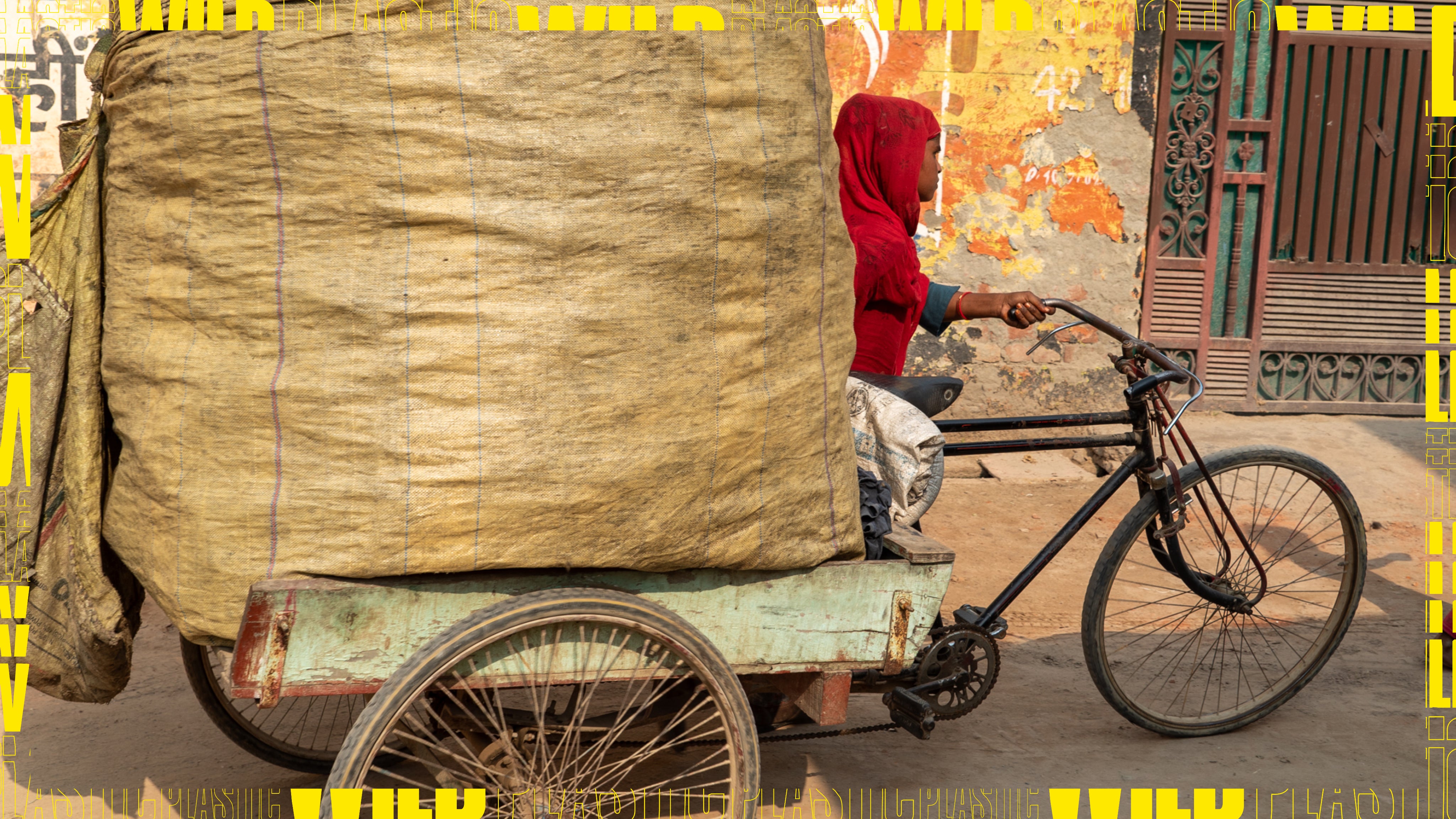During their last trip to India in October 2023, our colleagues Maiju and Ronja visited our partner Gemcorp in Mumbai. We have been working in close collaboration with Gemcorp over the last 1 ½ years and had already visited them before in April of 2023. At Gemcorp’s recycling plant in Navi Mumbai our team had a long conversation with Vikas Chhajer the Chief Sustainability and Strategy Officer for the Group at Gemcorp Recycling & Technologies about their work in the sector as well as their biggest challenges.
Who are you and what is your function at Gemcorp recycling & technologies?
My name is Vikas Chhajer. I am the Chief Sustainability and Strategy Officer at Gemini Corporation and a Director at Gemini Group’s Indian Subsidiary Gemcorp Recycling & Technologies Private Limited. Gemcorp is a four year old company in India. My role involves spearheading innovation and exploring ways to introduce new products and services that can make a greater impact in the developing world. On a global level, I make sure that our sustainability goals are met, that our efforts reach the right person and maintain global relationships.

Can you tell us a bit more about the importance of compliance in your work?
Not just in India but in all developing countries, the biggest challenge in waste management is that the waste that is collected and recycled goes through an informal channel. It is completely cash-based, and we want to change that because we cannot operate in a non-compliant way. That is our DNA. When we talk about our values at Gemcorp, it's integrity, commitment and trust. So that's something we want to implement in India as well.
Can you tell us a bit more about how you work with waste collectors around India?
So we actually started by giving mini baling machines to waste collectors and aggregators for free, with a contract that they would supply a minimum quantity of waste every month that they collect additionally from the environment. Besides this arrangement, we have initiated a series of social security initiatives. We ensure minimum wages, no child labour, payments through formal banking channels only, and insurance for them. The idea is to transition them into a more formal sector by giving them a legal identity. We ensure they have their tax numbers and file their returns, and they get access to clean drinking water. So when they comply with all the SOPs after three years, the machine is theirs to keep.
What kind of plastic do your waste collectors mostly collect?
So we collect polyethylene, both LDPE and HDPE, polypropylene and PET bottles. We also collect other plastics in very small quantities because they occur repeatedly throughout the entire value chain. But these three are the most important: polyethylene, polypropylene and PET.
How much waste is a collector able to collect per day?
PET is a bit of a volume game. If a waste collector focuses more on PET, the volumes can be pretty good because it's a very run-of-the-mill product. But I think in terms of weight, a waste collector can collect maybe 200 or a maximum 300 kilograms in a day, but to achieve this, they have to work in shifts.

So you already mentioned a few examples of how you are impacting the lives and the work of waste collectors, but could you elaborate on that a bit more?
We call the collectors reclaimers to give dignity to their profession because they are the backbone of the entire waste management industry in developing countries. When we started working with them, we tried to provide them with smartphones so that they could use our traceability application. But that is a challenge. These people are on the road most of the day. They only take a little break in between. And they are not tech-savvy enough to use an application.
Our aim was to actually get the financial benefits within the value chain to reach reclaimers, who often miss out on their rightful share. One way to ensure this was through the Bailing Machine Aggregation Network. We have a monthly program with them, a reclaimer outreach program, where we make sure that at least 50 of these reclaimers near our collection centers are supplied with everything they need. We provide them with food, clothing, slippers, educational toys, books, school fees, medical equipment, and anything they need.
We now have a network of almost 1,000 such reclaimers in India, and we intend to have more than 10,000 reclaimers in the next perhaps three years. Over the past years you have been in the process of getting the WFTO certificate.
Can you elaborate a bit on this process?
It's been a long road for us. It has been almost 8 months since we applied for accreditation. We went through an intense auditing process at our material recycling facilities and collection centers across India.
So it was a long process, but I think we are very happy that we now have a guaranteed membership of the World Fair Trade Organization, which shows that we have been able to address issues like child labor, social security and minimum wages.

What are the biggest challenges you are facing as a business operating in the waste sector in India?
As I said earlier, the Indian waste management industry is completely informal and cash-based. So, the taxes are not included in the entire value chain, and when we introduce these taxes, we have to bear the taxes from both sides. That increases our premium for the whole material. And we can't sell the material locally.
We can't be competitive at the local level. To be competitive at the local level, we always have to accept certain losses. So that's the first challenge. The second challenge is the quality itself. The PCR material that is collected is not sorted. Most of it either ends up in a landfill or is incinerated.
So sorting is a very big challenge, and we are now trying to increase the value of sorting at the second and third levels in our collection centers. So, I think the quality and the cash element are the biggest challenges.
What is the topic that you think should be addressed but does not get enough attention yet regarding plastic waste and recycling?
The global plastics economy, which many prefer to call a circular economy, should be circular, but how can you make it circular? And why only plastics? That's the biggest question. Why aren't we talking about metals? Why aren't we talking about paper?
Because they are self-financing, metal waste is actually a material input for the metal industry; similarly, paper waste material is an input for the paper industry. However, plastic waste is not an input for the petrochemical industry, which produces plastics. I think this is the gap that we need to close as the industry cannot finance it itself.
The financing part must be provided either by the manufacturers or by the brands that bring plastic packaging to the market. This financing component to bridge the gap is essential to integrate the 300 million tons of plastic waste into the plastic value chain, ensuring it can be recycled and reused effectively.

What were your first thoughts when you heard about WILDPLASTIC® and what we do and that we would like to work with you?
It was a pleasant surprise that there are companies working in this area that are trying to get the waste out of the environment which technically nobody in the developing world is interested in. They’re willing to pay the real cost for the collection and recycling to provide good material to the brand owners and those who are engaged and who actually want to work locally. So that was surprising.
Even though it was a European company and we are a European group, we knew that the quality standards would be very, very high. I think we were also a little bit afraid of how we could ensure these quality standards. But we learned, and you were happy to work with us, teach us and learn with and from us.
What do you think about the dream goal or target for WILDPLASTIC® and Gemcorp? What impact could we achieve together in India?
I think the biggest impact would be the formalization of the waste sector in developing countries. The collection and recycling of waste is still there, although the working conditions in which the collection and recycling take place is a big challenge.
I think Gemcorp and WILDPLASTIC® can play a very important role in making sure that the whole value chain benefits from the money that's coming in or the funding that's coming in and also how we can improve the hygienic conditions in which people working in the sector operate. So I think those are the two most important things that we should work together on.
A big thank you to Gemcorp Recycling & Technologies and especially to Vikas Chhajer and Siddhant Karnani.
Interview by Maiju Laamanen & Ronja Lamberty




Leave a comment
This site is protected by hCaptcha and the hCaptcha Privacy Policy and Terms of Service apply.